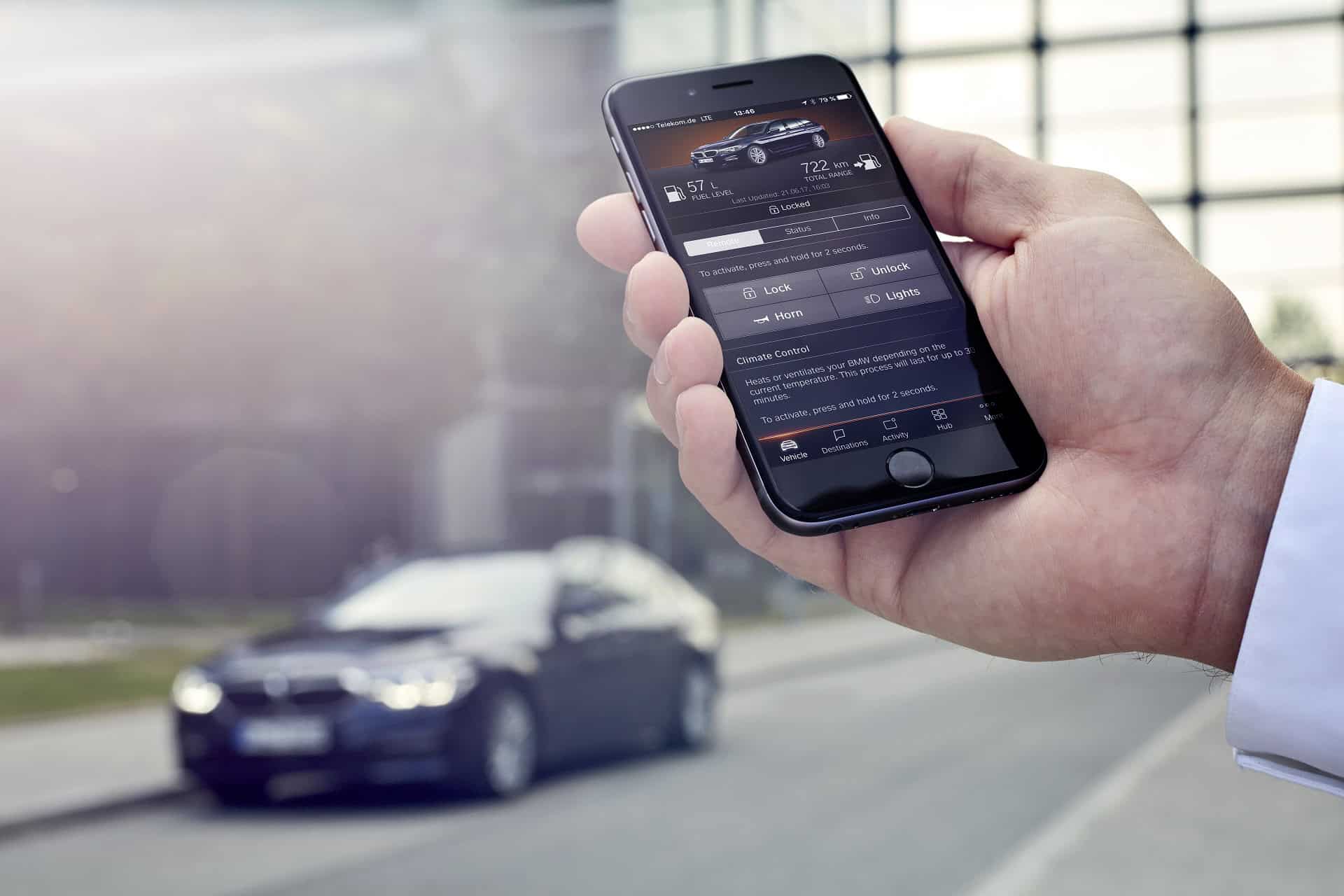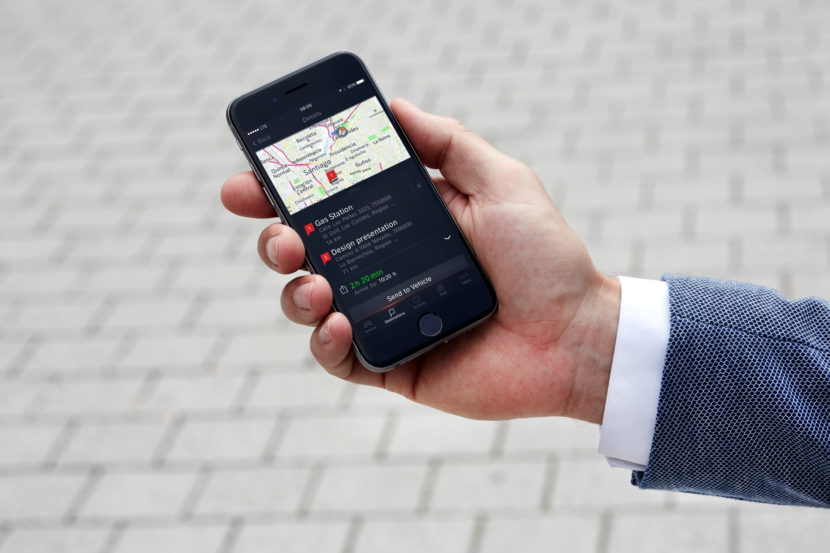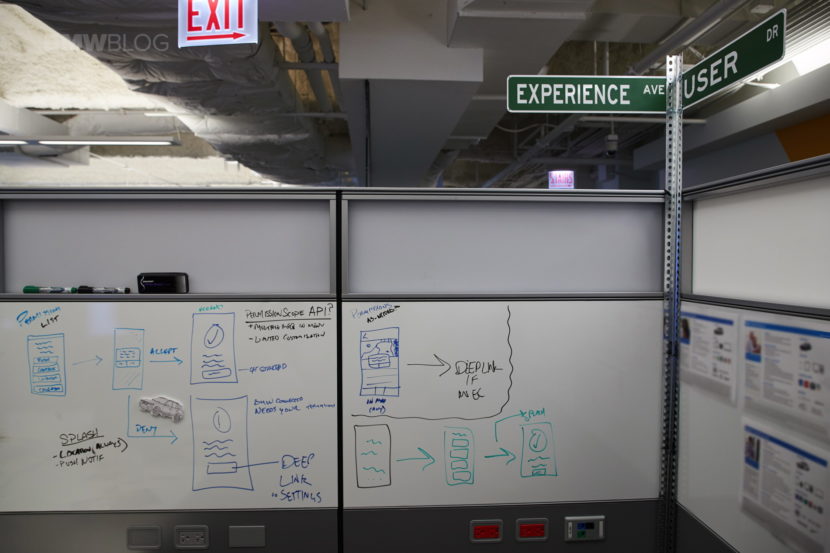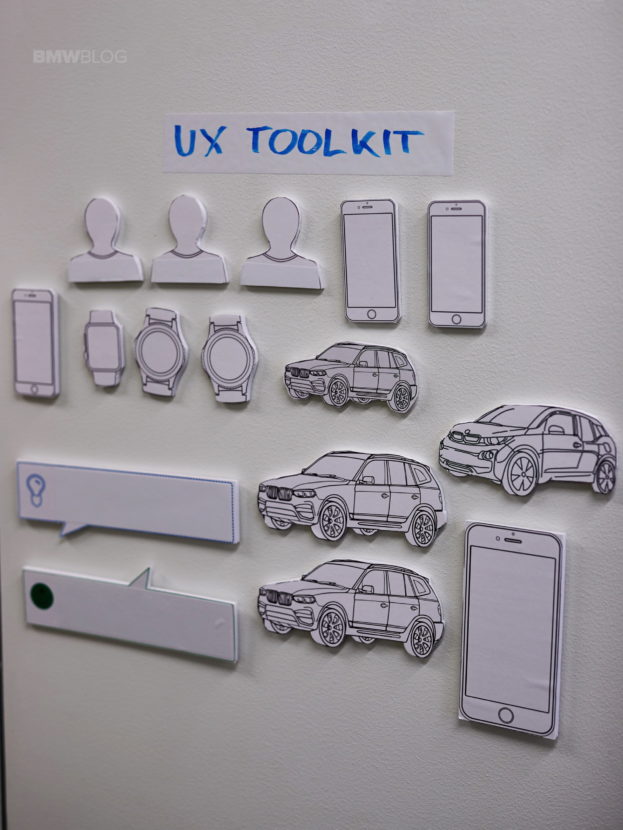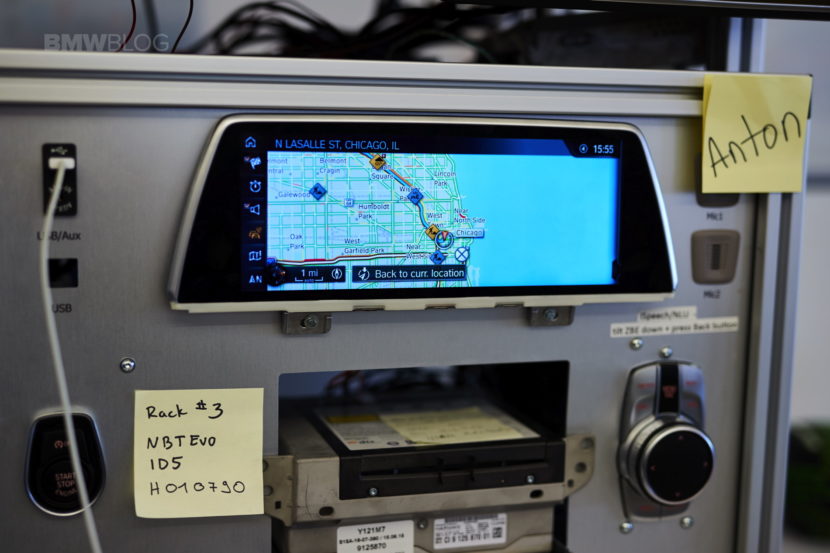In today’s world, software development cycles have been reinvented to cater to the fast-moving digital world around us, and for some companies, that means leaving their comfort zone. BMW is an engineering company which takes pride in their structured and precise 7-year cycle of car development, delivering premium products that are immediately ready to use. Yet, the Bavarians have had to reinvent themselves when it comes to software development. Furthermore, BMW has decided that it wants to retain full control over the in-car experience and that it controls the entire lifecycle of a product, including its mobile apps.
Last month, BMW unveiled the latest features of their digital assistant – BMW Connected – and on that occasion, they invited us to their Technology Office in Chicago for a guided tour. BMW currently employs 150 people in its Chicago office, from more than 20 countries and it’s mainly staffed by software specialists. The core of the Chicago team came from Nokia which has setup shop in Chicago before being acquired by BMW. The previous team has also been focusing on mobile, mapping and internet services, so the synergy was more than obvious.
While the Waterfall Model of building cars might be still be relevant today, when it comes to software, the product cycle had been shorten and streamlined, in order to keep up with the constant innovations in the digital world. BMW Tech Office Chicago has taken on the primary role of innovation driver and it houses The Product Management, Marketing, Software Development, Interface Design, Operations and Analytics teams.
All these teams work within the same office and just like in the startup world, they take a more iterative approach. Agile is the methodology of choice with sprints every few days, allowing the team to deliver iterative versions of their products which can be quickly tested and refined. Using tools like JIRA – tracking bugs and changes, Jenkins – automation server, Microsoft Azure – cloud services, Microsoft Power BI Charts – dashboards, Twilio – messaging; BMW is joining the likes of Silicon Valley companies which are known for using cutting-edge products.
READ ALSO: A Digital Day In The Life Of A BMW Connected User
The Product Management Team picks up on the latest trends and developments, thinks how to apply them to the automotive context and then devises initial ideas for appropriate services. In the process, the developers focus intently on the desires and requirements that a BMW customer will have of their vehicle, particularly with a view to the future. The resulting concepts are then validated via market and customer research, as well as in close collaboration with BMW headquarters.
BMW’s VP of Digital Products and Services Dieter May says that Minimum Viable Product is a term the Digital Team lives by, which is essentially a product released into the digital world, with minimum features that can help the BMW team gather quick feedback and quickly iterate or introduce new features. With this approach, BMW can deliver hundreds of small updates/increments every year.
Prototyping and wireframing is also done in the BMW Chicago Tech Office, where the hallways are adorned with different user scenarios, which serve as basis for most of the app’s workflows. There is even an Anton test rig – a clear reference to the popular HBO geek show “Silicon Valley” – which allows the software engineers to test their code on the actual iDrive Infotainment System.
BMW also works with third-party providers, under strict Service Level Agreements, to provide additional value, so things like Weather information are integrated via external APIs. Most of the BMW Connected platform runs on the cloud, provided by Microsoft Azure, with some data still being handled by legacy systems; e.g. customer accounts.
BMW says it currently serves more than 1 million digital users, a number that increases year-over-year, so investing in their software development capabilities is a top priority at the company.
The next big hurdle for the Bavarians is autonomous driving and all the challenges and regulations it comes with, but May says that makes the job even more rewarding and exciting, yet slightly more stressful.


